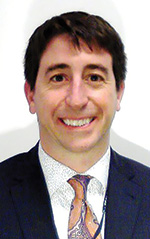Why Senior Leaders Cannot Reform the State Department
A close look at aspects of State Department culture that stand in the way of professional development and leadership training.
BY JOHN FER
Ten years ago, Kori Schake, a former political appointee deputy director for policy planning at the State Department, wrote State of Disrepair, a critical look aimed at improving our organization. While coverage of the book was sparse, those who did react (including one review in the October 2012 FSJ) acknowledged that the book hit on some important points, yet disagreed with Schake’s central claim that operating more like the military would solve most of State’s problems.
In the decade since its publication, not much in the State Department has changed. Schake’s assessments seemed well intentioned, written by someone who cares about how the United States projects power, both militarily and diplomatically. In fact, most State employees would likely agree with her top recommendations: invest in professional development and advocate for the organization by building better relationships with Congress and its constituents.
However, the reason nothing has changed since Schake wrote the book can be explained in a syllogism that she herself sets in motion:
- The State Department is dominated by political appointees.
- Political appointees focus on policy over professional development.
- Therefore, State cannot be changed for the better by political appointees or by high-ranking career officers who seek to please them.
Though Schake does not say it explicitly, a political appointee could not possibly understand State’s culture enough to change it; nor could senior-ranking officers who embrace the “policy over professional development” ethic. In this piece, I will try to argue why it’s up to us—those in mid-level positions (both Civil Service and Foreign Service) and locally employed (LE) staff—to make State a more effective organization and a better place to work.
How Appointees See State
In State of Disrepair, Schake describes career State employees as thin-skinned and inert, as smart, but content to not challenge or develop our intelligence or skill sets. She frames us with a quote from former Secretary of State Dean Acheson: “[The State Department] never did find its place. My memory (perhaps an unfair or incomplete one) is of a department without direction, composed of a lot of busy people working hard and usefully but as a whole not functioning as a foreign office.”
She sharpens the point, noting: “Fully half of the ambassadors at U.S. missions are political appointees. They are selected because of their commitment to the current president’s program, not their ability to conform to the standards of the Foreign Service. And overwhelmingly, politically appointed diplomats view the career Foreign Service as impediments to the president’s agenda, not allies in its advancement.”
These appointees include the Secretary of State and hundreds of appointed staffers, whom Schake also indicts: “Typically, secretaries of state invest little in the professionalization of the department. Instead, they spend all their time on policies rather than the functioning of the institution.”
She notes the noble efforts of Secretaries Colin Powell, Condoleezza Rice, and Hillary Clinton (Diplomatic Readiness Initiative, Transformational Diplomacy, and Diplomacy 3.0), but adds: “What none of them proved successful at has been substantially affecting the culture of the State Department such that it responded to their priorities.”
But what is the culture of the State Department? Schake takes a stab: “The people who are successful in the State Department are people who can be thrown in the deep end of the swimming pool and not drown; but the department never teaches them how to swim, and the successful ones even come to discredit the value of swimming lessons, because they succeeded without them.”
Here is the limit of Schake’s analysis, by her own admission as a political appointee herself. It is where we, as State’s career employees, should pick up the torch and take ownership.
Reframing and Reforming State Culture
While the Director General (DG) and under secretary for management (M) are charged with instituting and improving professional development in the department, most State employees could not likely identify any organizationwide effects of their efforts. This may be because the DG and M do not see that there are glaring problems with State’s culture of leadership; and this may be due to the fact that they are surrounded by staff who tell them that they are doing an amazing job. This predicament is a good illustration of State’s culture.
The first step is to understand the prevailing ethos in our culture, “managing up,” and then to discourage its most toxic mutations. Political appointees could spend multiple terms in State and still not understand how department employees apply “managing up” to their daily work and career advancement. A Harvard Business School article gives this definition of the concept: “Perhaps the most important skill to master is figuring out how to be a genuine source of help—because managing up doesn’t mean sucking up. It means being the most effective employee you can be, creating value for your boss and your company. That’s why the best path to a healthy relationship begins and ends with doing your job and doing it well.”
That’s fine in organizations that have clearly defined missions and core values (the Department of Defense and successful businesses, for example); but at State, where we are regularly reoriented according to the latest agenda of political appointees, the most ambitious of us (in an organization full of ambitious types) fall back on the baser impulses of what it means to manage up. This metastasizes into hypercompetitive behavior, overreliance on “staffer skills,” and, at its worst, the practice of “kiss up, kick down.”
One need only look at our evaluation processes and results to see that instilling a hypercompetitive, “walk-on-water” culture is damaging to the organization. It incentivizes us to groom wordsmiths who model their evaluations (rather than their behavior) to the promotion precepts. Some of the worst officers I know in this organization are some of its better writers when it comes to articulating the precepts boards key on.
The first step is to understand the prevailing ethos in our culture, “managing up,” and then to discourage its most toxic mutations.
In an explanatory anecdote, when President Donald Trump was pushing for a wall on our southern border, a Border Patrol agent gave an interview, saying: “The minute you build a 12-foot wall, there’s going to be a sale on the other side of 13-foot ladders.” Similarly at State, no matter how we change the precepts to include “leadership” or “institution building,” it may simply encourage greater wordsmithing to convince the promotion boards, regardless of veracity, that this is happening.
Another indicator of the perversion of managing up is the dominance of “staffer” career tracks, ones in which senior leaders arrive at the pinnacles of their careers not by leading and managing others, but by jumping from staff job to staff job, chasing the highest-profile principals to get better jobs and be promoted. In many cases, this results in a corps of high-ranking career State people who have no idea (in the sense of leadership forged in battle) how they became in charge. (They can explain their career progression eloquently in writing, but their behavior on the ground when faced with leadership challenges often tells a very different story.)
This lack of experience comes at the expense of the people in the organization. A staffer who rises to the top without being tempered by leadership training and experience will seek other staffers to get the job done, perpetuating a cycle of subservient, please-thy-boss-at-all-cost behavior that is, again, damaging to the organization.
Pleasing one’s boss is important, but not when it comes at the expense of those at the working level. At State, where the consequences of our actions (outside consular work) rarely result in immediate loss of life or declining revenue, this behavior is tolerated at best, embraced in the worst cases. It makes our organization one that cultivates selfishness.
We frequently hear at every level, “No one is advocating for you. Only you can take care of your EER, your career.” This ethos also intrudes into our hiring practices. How often do managers go beyond cherrypicked 360-degree evaluations to actually investigate who is angling for which jobs and how those candidates could affect the missions to which they will be assigned? Even one’s résumé and personal statement can be tailored to the “no one is looking out for you” credo. Think of the implications if a significant number of State’s most successful officers believe that neither the organization nor their fellow officers are looking out for them, that they got where they are because of looking out for number one.
In an organization in which one can become a deputy chief of mission or ambassador after only three weeks of mandatory leadership training in a career, how could we possibly develop, unless by accident, into effective leaders? When we don’t give hiring managers the time and resources to really look into who will be selected, when we allow high-ranking leaders to deliver favors in the way of plum jobs to staffers, we again encourage this damaging culture that dominates our ranks.
Schake says we should be more like the military, which is also an organization that is (usually) led by politically appointed civilians. However, military servicemembers, from the top general to an entry-level enlistee, understand, usually embrace, and hone their commitment to the culture of leadership. Consider the contrast: Foreign Service officers are commissioned after a few weeks of orientation, whereas military officers go through rigorous training that continues their entire careers.
In the military, where the average person spends close to a third of their career in training, you are taught that you are always in a position of leadership, at any level, because you can lead by example. You can lead your peers, and you can demonstrate to the communities surrounding your installation that you are a leader. What is second nature in soldiers, sailors, airmen, and marines, is an afterthought for most diplomats.
How Do We Change It? Don’t Start at the Top
Good organizations focus on professional development. State does not focus on professional development. Finish the syllogism. These are not new observations. Similarly, the excuses for our professional failings are trite and worn out: no time for a training float? Of course, there’s no time when you focus on policy over professional development. That’s why our current senior leadership cannot be expected to enact meaningful change in this regard.
Those who have risen the ranks in a faulty system may be reluctant to say there was anything wrong with it. I’m not saying that those at the top are bad leaders; however, because they rose through a system that did not didactically test their leadership abilities, their current success could disincentivize them to point out flaws and make improvements.
In April 2021, I and 49 other Foreign Service and Civil Service officers graduated from the inaugural cohort of the Secretary’s Leadership Seminar. We presented our capstone projects to a group of senior ambassadors, one of whom remarked that it was amazing that FS-2s and GS-14s were thinking so actively and creatively about how to change the department for the better. Many of us laughed about it later, saying, “This is an average Tuesday” in the mid-level of the State Department; we are always thinking about things like these.
State’s lack of leadership culture blunts our abilities and blights our better impulses. This is not the fault of the current or past leaders, but they cannot be counted on to be the ones to change it. We have to be humble enough to empower mid-level officers and LE staff, and they should be given the time and top cover to do it.
I close with one recommendation: Empower a corps of mid-level Civil Service and Foreign Service officers and LE staff, selected by their peers (this core group can add others at various ranks if they desire), with the mandate and authority to improve our culture of leadership in the department by chewing on problems most of us agree on, such as:
- How can we institute a career-long focus on training and development while also accomplishing State’s vital missions?
- How can we better value (and utilize) the backbone (70 percent) of State’s workforce, LE staff?
- How should we assess and promote those who show good leadership skills instead of good staffer skills?
- How can we use “manage up” to bring out the best in everyone in the organization?
The State Department has no shortage of working groups, which produce a surplus of takeaways, do-outs, and deliverables. (I’m sure there are currently three such groups working on every problem I identify in this article.) What we are lacking is the will to change for the better and a tipping-point-style action to put changes into effect. This new group needs S-level top cover to be able to recommend sweeping changes that the Secretary can approve and fast track. By empowering a group of leadership change agents, State’s current political leadership could leave a legacy just as significant as the good policies they are pursuing; they could be the architects of a new culture of leadership, making State a better and more effective place to work.
When sharing or linking to FSJ articles online, which we welcome and encourage, please be sure to cite the magazine (The Foreign Service Journal) and the month and year of publication. Please check the permissions page for further details.
Read More...
- “Management in the Foreign Service” by E. Gregory Kryza and William E. Knight, The Foreign Service Journal, March 1975
- “Tips from the Belly of the Python” by John Fer, The Foreign Service Journal, May 2015
- “On State Reform” by Dennis Jett, The Foreign Service Journal, March 2021





